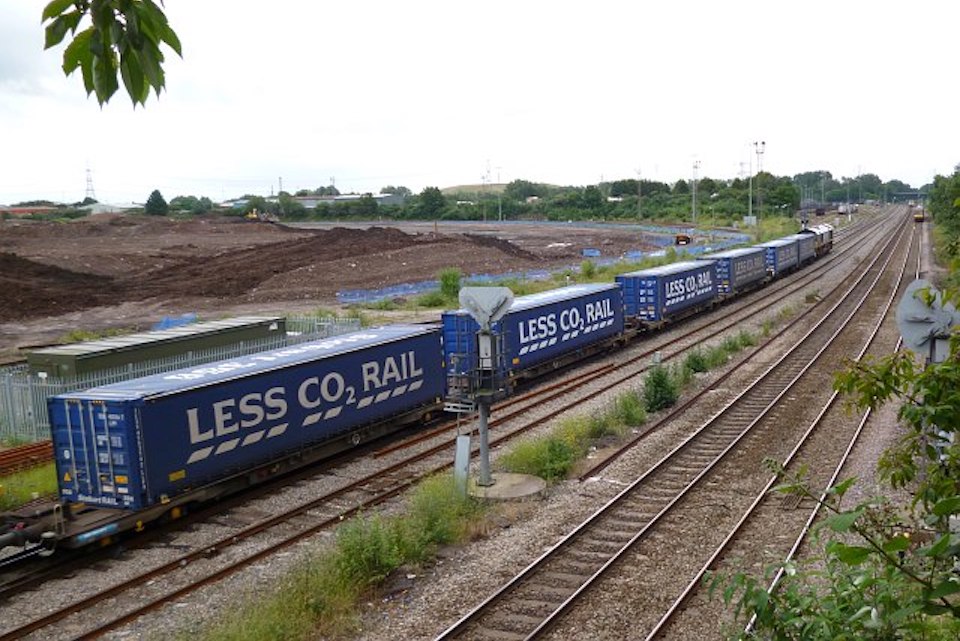Concerns over South Wales’ freight future

A high-level report has cast a shadow over rail freight development in South Wales, just as the railway in the region is undergoing much-needed modernisation. Representatives of the industry say that if adopted, the report recommendations could put the cause of rail freight in the region back twenty-five years. The South East Wales Transport Commission report has prompted a concerned reply from the Rail Freight Group representative in the region.
Wales and West Midlands Representative for the Rail Freight Group (RFG), Robin Smith, has said that an earlier report by the South East Wales Transport Commission could hamper development of rail freight services, and put them back to the mid 90s. Then, the sector was in decline due to the closure of the dominant coal industry in South Wales.
Find alternatives to congestion
The Commission was set up by the First Minister of Wales, Mark Drakeford, in October 2019. It is Chaired by Lord Burns, a right-wing peer and former chief advisor to the UK Treasury, and was tasked with examining sustainable ways of tackling congestion on the busy M4 – the main arterial motorway which connects all the main regional population centres, including Newport, Cardiff, Bridgend, Port Talbot and Swansea. The report was commissioned to find alternatives to reliving congestion, after a long planned M4 Relief Road, passing to the south of Newport, was abandoned.

Smith says the RFG was involved in stakeholder discussions on a number of occasions during the work of the commission and submitted a robust response to the “emerging conclusions” when they were published in July 2020. “However”, he says, “the commission has not heeded our concerns and the final report refers to ‘freight’ or ‘goods and services traffic’ on few occasions in its ninety pages. Rail freight is mentioned even less often and in a somewhat dismissive manner.”
Permanent change of demand
Part of the rationale behind the sporadic mentions of freight, notes Smith in a submission to RFG members, is the key finding that freight is not a major contributor to congestion. However, Smith points out that freight is highly affected by congestion, especially in the extended corridor from west of Cardiff through to Bristol, an area considered by the commission as one large travel to work area.
The commission concentrates on improving passenger connections – a strategy that may be called into long-term question, given the changes to work patterns brought about by the coronavirus pandemic, and which many commentators believe will now result in a permanent change of travel demand.
Restricted freight movements
Many of the commuter-led recommendations are made at the possible detriment of rail freight expansion. Smith further argues that they could even jeopardise existing services. “To deliver the improved rail passenger services needed, the commission recommends a complete re-ordering of the South Wales Main Line between Cardiff and Severn Tunnel Junction”, says Smith. The current main lines will be given over to local passenger services, with six new stations along the 22 route miles (34.6km).

If the report is adopted, the current relief lines are to be re-engineered to become the fast lines, shared by express passenger services and freight. However, such a mixed use arrangement would undoubtedly restrict freight movements or severely curtail daily capacity. “The implications are glossed over in the commission’s determination to present the case for the significantly enhanced level of passenger service provision”, says Smith. “Not the least of these problem areas is that virtually all the freight connections are on the south side of the line and accessed from the relief lines.”
Hoped for holistic view
Freight activity includes movements from Newport and Cardiff Docks, the steel works at Llanwern, and the intermodal site at Wentloog, between Cardiff and Newport and operated by Freightliner. While rail development is generally to be welcomed, Smith argues that the report has taken an outmoded and outdated view in reaching its conclusions, and he urges a rethink.
“Overall, from a rail freight perspective, the commission’s final report and recommendations are, at best, a missed opportunity while providing the potential for even existing rail freight flows to be sidelined to permit enhanced passenger services – very much ‘old railway’ thinking”, he says. “Hopefully the Welsh Government’s draft Wales Transport Strategy, currently out for consultation, and due to be published in March 2021, offers a more balanced and holistic view of all modes of transport and all types of movement.”
You just read one of our premium articles free of charge
Want full access? Take advantage of our exclusive offer




